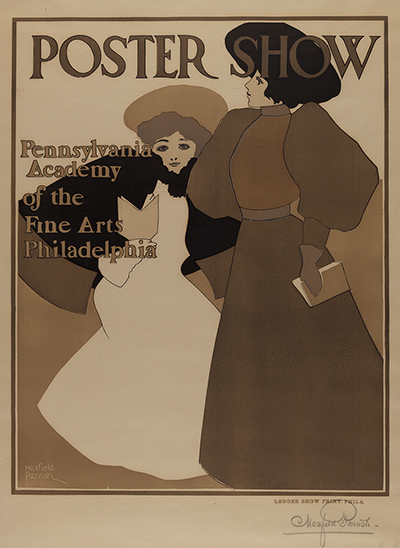Coverage of March 23 University Council Meeting
In accordance with the University Council Bylaws, the March Council meeting included “extended reports by the President, the Provost and other administrators covering budgets and plans for the next academic year.” The remarks on pages 5-7 were adapted from the presentations given.
Reports on the Budget and Plans for the Next Academic Year
University FY16 Operating Budget
Bonnie Gibson, Vice President, Budget & Management Analysis
I will be reviewing the FY16 current year budget. The FY17 budget is still being developed, and will be presented to the Trustees for approval in June. I will discuss our total charges for FY17.
For FY16 we have budgeted $3.37 billion dollars in revenue. This chart (below left) shows the multiple components of revenue, but the easy way to think about our revenue sources is in thirds. The first, slightly over weighted third is tuition and fees, representing over $1.2 billion or 35% of our operating revenue. This category includes undergraduate, graduate and professional and other tuition. The second, slightly underweighted third is sponsored programs, or research, representing $878 million or 26% of our revenue. The final third is everything else, representing $1.29 billion or 39% and including the income from our endowment, gifts, other income (mostly sales and services), transfers and support for the Vet School from the Commonwealth of Pennsylvania. So as you think of our revenue sources, remember thirds.
Our expenditures also total $3.37 billion, with 52% of that total in Compensation, including salaries and benefits ($1.73 billion). Current Expense makes up 25% of our expenditures, with Capital and Student Aid representing the final 23%. This chart (below right) shows what we spend our money on, while the next slide shows who is doing that spending.
School spending represents almost $2.3 billion, or 68% of our total expenditures. The next largest component, administrative centers, including Finance, HR, Public Safety, Information Systems and other administrative units, is $406 million or 12%. The cost of our space is $173 million. However, 74% of the space costs are actually for school space: if we move those costs to the school segment, school expenditures increase to 71% of the total.
Our total aid budget for FY16 is $454 million, a 3.5% increase over FY15. Graduate and professional aid, including stipends, is $248 million, while undergraduate aid is $206 million. These numbers represent direct financial aid to individual students, but in fact the cost of a Penn education is subsidized for all students. Our audited financial statements show that tuition and fees cover 70% of the cost of a Penn education, with gifts and endowment income covering the balance.
Total Undergraduate Charges for FY17
For FY17 the Trustees have approved a 3.9% increase to undergraduate total charges, with tuition, fees, room and board at $66,000 next year. Room and board are based on the average standard room and the freshman meal plan. Over the past 10 years Penn’s increase in total charges has been at the average for our peer group: never the highest, and never the lowest. This is the 8th consecutive year that we have held the rate of increase below 4%.
This increase in total charges generates net incremental revenue of $14.4 million after the application of $9 million to the financial aid pool, with $9 million of that in net tuition revenue. Net tuition after aid actually grows by just 2.8%.
Financial Aid
I want to present our aid information as a series of important questions. The first is whether we are keeping a Penn education affordable and accessible. For the average aided freshman, the cost of attending Penn in constant 2005 dollars is actually $2,690, or 14%, lower than it was in FY05.
The second question is: How much aid are we actually providing to students? This graph shows the distribution of traditional undergraduate grants by size for both the freshman class and the overall aided population for the current year. Seventy-one percent of our aided students received grants of $35,000 or more, while over 43% received grants of $50,000 or more, and 20% received grants of $60,000 or more. Forty-seven percent of traditional undergraduate students receive aid, and the average freshman grant this year is $41,194.
The third question is: What percentage of total charges does our aid program cover? This graph (not shown) looks at the median grant and the median grant as a percent of total charges. The median for all aided undergraduates is in blue, and for aided freshmen in green. Not only has the median grant increased significantly over the past five years, but as a percent of total charges it has grown from 67% and 69% to 74% and 76% respectively. This means that our aid is actually growing more than our total charges, covering a larger percentage of the costs.
Since President Gutmann took office in 2004, we have been steadily increasing our financial aid budget. It has grown 171% during that time, in part due to our generous all-grant policy, but also due to higher need as a result of the recession. Our aid budget has grown at almost twice the annual growth rate for tuition over this time period.
Graduate and Professional Tuition and Aid
In 2015, the last completed fiscal year, we had 3,154 PhD students across nine different schools. Almost all of our PhD students are fully funded for at least three years, and most for five. Full funding includes tuition, fees, health insurance and a stipend. Some schools pay a higher stipend to cover the student’s purchase of health insurance. For an SAS Humanities PhD student entering in the fall of 2015, the standard five-year funding package is worth over $347,092 in constant FY17 dollars.
PhD tuition and the research master’s tuition will increase at 3.9%, the same rate as undergraduate tuition. Professional tuition is set by the schools based on their specific needs and markets.
The distribution of PhD students and expense by school and category shows that Arts & Sciences has the largest number of PhD students, and the largest expenditures: over $69 million in FY15.
This concludes my presentation. I would be happy to answer any questions.
For more, see http://www.budget.upenn.edu/Operating_Budget/
An Update on Penn Global & Perry World House
Ezekiel J. Emanuel, Vice Provost for Global Initiatives
I am going to discuss our global initiatives, and Bill will talk about particular aspects of those initiatives relating to the opening of Perry World House in the coming months. The right place to begin is with Commencement 2015, a celebration of Penn’s global engagement with President Gutmann speaking powerfully on the topic. The Commencement speaker, Samantha Power, spoke on the topic as well, and I think in some ways challenged Penn students to engage globally. I want to remind everyone that about a year or two after I came to Penn in 2011, we developed a strategic plan for global engagement, which is based upon three pillars. Pillar 1 is to prepare Penn students for an increasingly globalized world. Pillar 2 is to make Penn more of a global agenda-setter in terms of big policy issues. Pillar 3 is to promote healthy and inspiring lives across various areas where we have particular strengths, including China and East Asia; India and South Asia; Africa; and Latin America. Those have been the guiding principles and pillars that we have focused upon.
Pillar 1: To drill down a little bit, we have focused a lot on Penn students, both those that go abroad and those international students who come to Penn to study. About 29% of the Class of 2015 will actually get credit for doing academic work abroad. But there are many other ways that Penn students engage globally. Our office sponsors a summer internship program that is not for academic credit, but for learning through service in a variety of ways. We have had nearly 300 applicants and this year we will have about 100 internships. We provide and have launched a pilot program on global seminars where professors teach as part of a regular course on campus and take students overseas to learn. Wharton has had a number of global modular courses. We have more than a dozen majors that focus on global activities. So there are a number of ways and we continue to explore ways to provide opportunities for students both to study and to live abroad and to experience the world in an academic setting and also in many other ways. We bring a number of international students to Penn. In the College, 11-12% of the undergraduate body are citizens of other countries. We have focused a lot of attention on trying to integrate international students who come to Penn in a number of ways, and there is going to be a whole series of new changes especially to our new student orientation to try to integrate international students better. We have developed a forerunner program to educate students coming to Penn from China and India, which provide a very large portion of foreign students here. We are having a welcome dinner, having launched this last year. It was a formal welcome dinner right here on the plaza, and we are going to continue it this year with a number of undergraduate speakers and myself along with another member of the faculty. We have extended the move-in period for international students and we are going to provide a more integrated way for them to get oriented, get bank accounts, cell phones, etc. We have a number of ongoing activities already in place including advisory groups helping me and various members of the administrative structures here at Penn figure out what the needs are of students and how best to respond, as well as how our programs are actually helping. So we continue to work on this and I think that, as you will hear from Bill, we are pretty confident that Perry World House will provide a fulcrum for global activities on campus, especially for students.
Pillar 2: Penn as a global agenda-setter. It is somewhat difficult to measure this, but one of the things we want to do is to make sure that the tremendous resources here of faculty as well as students actually have a serious and thoughtful input on issues that affect the global community, whether they be global warming, conflict, immigration or other issues. We have a number of centers that focus on this: the Penn Wharton China Center, the Center for the Contemporary Study of China, the Center for the Advanced Study of India, the Center for Global Communication Studies, the UPenn Botswana Program in Africa and the Institute for Urban Research, which does a lot of work on urbanization and issues surrounding that. So you can see we have a lot of faculty that actually do research or teach or lead programs in other countries. These global activities are not a matter of just going to visit, or giving a one-off lecture. They have to be sustained teaching or sustained research programs over time. You can see they really do stretch across the globe, and there are some particular areas where we have high concentrations—in East Asia, South and Central America, etc. One of the goals of Perry World House is to strengthen Penn as a global agenda-setter. President Gutmann mentioned the importance of providing suitable support for students and faculty who go overseas. One of our major initiatives has been to provide integrated and comprehensive risk assessment of travel, to provide support for students, faculty and staff going overseas, and making sure that if any crisis happens overseas (whether it’s a bombing, the Paris attacks or a tsunami in Japan) that we are able to identify our students and faculty there and we are able to assist them in evacuating if that is necessary. We could also provide any number of other services, health related or otherwise. It does require knowing if people are overseas, so we have this Global Activities Registry, which is mandatory for students and faculty. We have to know where you are. If you haven’t actually registered, it is hard for us to track you; it is hard for us to provide all the help we can. We also provide lots of other support in emergencies, but also just going over and getting regular information. As I said, this level of support has dramatically increased over the last four years.
Finally, through a variety of mechanisms, we are trying to incentivize the engagement of Penn faculty and students in scholarship and service overseas in a variety of ways. We have a Global Engagement Fund and each year we provide grants for faculty to engage in research and to engage in other activities overseas. Usually these are seed money; I like to consider them venture funds. They provide early support, which can blossom into full grants or full-fledged projects by the faculty. We also have funds that support, in particular, our new initiatives in China so that faculty from all the schools—Wharton as well as the 11 other schools—can actually go there and have prolonged engagement with our center in China. These have been enormously successful in seeding new projects around the globe.
Over the last four years we have been planning and literally constructing Perry World House, both physically constructing it, but more importantly identifying its first inaugural director and the set of programs that will launch the building. We are coming to the end of the physical construction process. Those of you who go over Generational Bridge will see the very new building on the right over 38th Street, and that is going to be what I like to call the fulcrum of all things global on campus. The inaugural director is to my right here: Bill Burke-White. He has devoted an enormous amount of energy over the last 18 months to getting faculty and students engaged into thinking about the kinds of programming involved. Now you will hear from him about the vision for the first few years of Perry World House.
Bill Burke-White, Director, Perry World House
Thanks Zeke, it is a real pleasure to be here. Particularly, when I used to start talking about Perry World House I would say, “Imagine walking across the Generational Bridge and seeing this beautiful building.” And I can now say, “Walk across the Generational Bridge and you will see this beautiful building.” It is truly a spectacular new structure and we are so lucky to have it on our campus. I have been given the task, not of building the physical building, but making it sing and serve the entire Penn community. What I’m hoping to do today is to share with you our initial plans for how we will do that as we open the doors of the building with a preview late this spring and formally next fall. President Gutmann’s vision for Perry World House is a place that will catalyze, convene and connect—catalyze research and activity on campus, convene important conversation and connect Penn to global policy debates. As we think about the programming that will happen in it, those are really the fundamental goals.
The first pillar of what Perry World House will be is a kind of international public forum—the space on campus where students and faculty from any of the 12 schools know they can come in order to host an event, to run a conference, and to bring Penn together around international topics. We have already been doing this. Earlier this fall you may remember the German President Joachim Gauck came to campus for a talk. We have had Pussy Riot here. We have had Jeffrey Sachs speaking on global environmental issues. We have had Bill Burns, the Deputy Secretary of State. These kinds of events will continue and accelerate once we have a space to do it. We will do this in partnership with all the student organizations around the table today and with all of Penn’s 12 schools. Some of the special series we will be launching include a “Views From Washington” series bringing Washington policy makers up to Penn. We had the Deputy Trade Representative yesterday, a State Department official next week. We will have “Rapid Response Seminars” where we take events that happen in the world and very quickly do a reaction bringing Penn faculty and using the video conferencing technology available at Perry World House to bring policymakers and others to the table. We are hoping to do many cultural events in conjunction with the cultural student organizations.
A second pillar of our activities is really built around students. We have been thrilled to work with student groups over the last two years. A couple of the special things we will be doing in this space include the Student Fellows Program, and applications are due tomorrow. The World House Student Fellows Program will be a group of Penn undergraduates (we hope to expand to the graduate level later on), where you will be able to have special access to the activities at Perry World House, including being a research assistant to one of our visiting policymakers; come to the ‘after talk’ that President Gauck hosted after his event (Fellows will get access to that); they will also receive career advice for students who want to have careers in the international policy space. We hope to start with between 20-30 undergraduates across the sophomore-senior years and, over time, expand that program. For students who don’t want to make that big of a commitment, we will have lots of other activities. We will have cultural events and performances. We will work with Penn Global to support international students—whether it’s through a welcome reception, or a graduation event, or a “How do you survive Philadelphia winter? Hot chocolate on the first cold day of the year” event. We will also have events that are open to all students even if you are not one of the 40 who wants to do that program, so we want the building to be open. There is an amazing lounge space there, as well as a policy lab where groups can meet. We really want students to feel that this is a home for international students, internationally interested students and frankly any student walking down Locust Walk who wants to come in.
The heart of the research side of Perry World House is the Global Innovations Institute. And this really builds on Zeke’s point of making Penn a global agenda-setter. We have chosen, in consultation with faculty and really looking at areas of both policy need and Penn’s strengths, two initial research themes: one of which is around the future of the international order, power, governance and technology.
What I love about this theme is how deeply interdisciplinary this is—it draws on the drone lab and the computer science labs at our Engineering School. The folks in my school, the Law School, are working on governance issues. But also philosophers and political scientists as we think about, “How do we govern new technologies? How do we build institutions robust enough to confront the challenges we are seeing in Europe today? How do the US and China work together going forward?” All of those questions fall within this topic.
A second theme is around urbanization, migration and refugee issues. This is enormously timely today, building on the work done in our School of Design around urbanization, the work demographers and sociologists at Penn are doing surrounding migration, also around what is happening in the School of Veterinary Medicine surrounding animal husbandry and urban settings. This is really deeply interdisciplinary, but also important policy challenges where we think that Penn can make a difference. What are we going to do around these themes? How can students and faculty come together? Take a theme like: how can urbanization drive positive political and social development? Around that theme we will bring together different schools from Penn like Design, Arts & Sciences, Wharton and others.
We will have postdoctoral fellows who are working in an interdisciplinary environment to produce cutting-edge new research. We will have visiting faculty from universities around the world who might be on sabbatical who are able to come and spend some time with us. We will bring global leaders who are working on these issues to Penn to weigh in. We will engage policy stakeholders, whether it’s USAID or the UN. Ultimately we will produce keynote signature reports, white papers and blog posts that really try to engage Penn in the most important policy debates of our time.
We are really excited looking forward to launching this more formally. The formal launch will start September 19-20 with the grand opening of Perry World House. On September 19, we will have a series of policy and academic panels that relate to each of the two themes I have mentioned but also to other nascent focal areas that may become themes at some point: one around religion and politics, and one around women and human rights. Those panels will be an exciting starting point that evening. We will have a great reception at Perry World House to open the doors. On September 20, we will have a high-level policy forum. We will announce some of the speakers for that in the coming months. I promise it will be very exciting and I am delighted that President Gutmann will help us cut the ribbon that day as we formally open Perry World House.
That opening is just the beginning of what will be I hope a wonderful year for Penn’s international engagement more generally. We have launched our postdoctoral fellows program. We are excited that the first four people we have made offers to have accepted. They represent three different disciplines in three different countries of national origin.
We have launched our distinguished visitors in residence program. Policy makers will come and spend time with us at Penn and I have made each of them commit to spending time with Penn faculty and with Penn students. They are very excited about that. I think that we will all find having them on campus invigorates conversations.
We are continuing to cosponsor events with students and faculty. Once the space is available, I think the biggest co-sponsorship we can do is give you space to host events of an international nature at the heart of campus and help support the events that happen there. We will continue to have thematic workshops of various sorts.
We had one several weeks ago on global urbanization issues. Those will be open both to Penn faculty and Penn students across a range of issues. We had one last week on How Language is Important in Understanding Sustainable Development. We had linguists from around Penn thinking about what sustainable development means in different linguistic concepts. My point is that these workshops and thematic conferences are supposed to be very inclusive for the Penn community.
In April 2017, we will have our first big keynote conference. Going forward, we will have one in the fall and one in the spring. This coming fall will be the grand opening. But really Perry World House is supposed to be a place that doesn’t just sit there once the doors are open. We will be a vibrant home for Penn’s international engagement and one where I hope everyone at this table will find some reason to come in the door, to spend some time, grab a coffee, and also to allow us to help you advance your own interests and agendas in the international space. With that, I want to say thank you very much and I look forward to welcoming you at Perry World House in the fall.
For more on Penn Global, see https://global.upenn.edu/
and for more on Perry World House, see https://global.upenn.edu/perryworldhouse
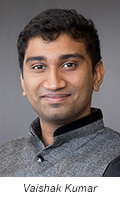 Vaishak Kumar, NESARA Agriculture Extension: Mr. Kumar, a senior in the College of Arts & Sciences, will utilize cost-efficient technology and novel research to help farmers in India boost their productivity. The project will employ mobile technology to improve farmer education in India, where the plight of farmers continues to be of great concern. He will also set up a low-cost mobile laboratory to provide farmers with timely, personalized information. Mr. Kumar is being mentored by Devesh Kapur, director of Penn’s Center for the Advanced Study of India.
Vaishak Kumar, NESARA Agriculture Extension: Mr. Kumar, a senior in the College of Arts & Sciences, will utilize cost-efficient technology and novel research to help farmers in India boost their productivity. The project will employ mobile technology to improve farmer education in India, where the plight of farmers continues to be of great concern. He will also set up a low-cost mobile laboratory to provide farmers with timely, personalized information. Mr. Kumar is being mentored by Devesh Kapur, director of Penn’s Center for the Advanced Study of India. Melanie Mariano, Living HEALthy: Health Expansion Across Libraries: Ms. Mariano, a Nursing senior, will partner with the Free Library of Philadelphia to assist library patrons in obtaining health information, medical counseling and preventive health services. Her project will employ a “one-stop-shopping” approach that will actively disseminate health information, provide care and allocate resources in an efficient way. Ms. Mariano will pioneer an inter-professional health-care model with social workers, nurses and librarians. She is being mentored by Monica Harmon, senior lecturer in Nursing.
Melanie Mariano, Living HEALthy: Health Expansion Across Libraries: Ms. Mariano, a Nursing senior, will partner with the Free Library of Philadelphia to assist library patrons in obtaining health information, medical counseling and preventive health services. Her project will employ a “one-stop-shopping” approach that will actively disseminate health information, provide care and allocate resources in an efficient way. Ms. Mariano will pioneer an inter-professional health-care model with social workers, nurses and librarians. She is being mentored by Monica Harmon, senior lecturer in Nursing. Kriya Patel, Coming Home to Continued Care: Ms. Patel, a senior in the College of Arts & Sciences, will help women about to be released from the all-female Riverside Correctional Facility in Philadelphia apply for and secure health insurance and identification prior to release. The health insurance will allow the women to stay on their much-needed medication, which will aid in the re-entry process. Ms. Patel will keep track of the women for at least three years to monitor the effects of continued care on recidivism rates. She is being mentored by Kathleen Brown, practice associate professor of Nursing.
Kriya Patel, Coming Home to Continued Care: Ms. Patel, a senior in the College of Arts & Sciences, will help women about to be released from the all-female Riverside Correctional Facility in Philadelphia apply for and secure health insurance and identification prior to release. The health insurance will allow the women to stay on their much-needed medication, which will aid in the re-entry process. Ms. Patel will keep track of the women for at least three years to monitor the effects of continued care on recidivism rates. She is being mentored by Kathleen Brown, practice associate professor of Nursing.
 Charles R. Perry, associate professor emeritus of management at the Wharton School, died at home in Chelsea, Michigan, on March 15. He was 77 years old.
Charles R. Perry, associate professor emeritus of management at the Wharton School, died at home in Chelsea, Michigan, on March 15. He was 77 years old.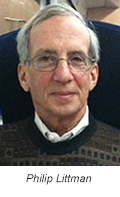 Philip Littman, a former associate professor of radiation therapy at Penn, died at home on March 16 from complications related to ALS or Lou Gehrig’s Disease. He was 75 years old.
Philip Littman, a former associate professor of radiation therapy at Penn, died at home on March 16 from complications related to ALS or Lou Gehrig’s Disease. He was 75 years old.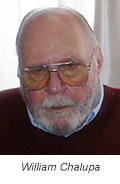 William (“Bill”) Victor Chalupa, professor emeritus of nutrition at Penn Vet, died at Paoli Memorial Hospital in Pennsylvania on January 25. He was 78 years old.
William (“Bill”) Victor Chalupa, professor emeritus of nutrition at Penn Vet, died at Paoli Memorial Hospital in Pennsylvania on January 25. He was 78 years old. David F. Dinges, chief of the division of sleep & chronobiology and director of the Unit for Experimental Psychiatry in the Perelman School of Medicine at the University of Pennsylvania, has been awarded the 2016 Pioneer Award from the National Space Biomedical Research Institute (NSBRI). He received the award last month at the 2016 NASA Human Research Program Investigators’ Workshop at Galveston Island, Texas.
David F. Dinges, chief of the division of sleep & chronobiology and director of the Unit for Experimental Psychiatry in the Perelman School of Medicine at the University of Pennsylvania, has been awarded the 2016 Pioneer Award from the National Space Biomedical Research Institute (NSBRI). He received the award last month at the 2016 NASA Human Research Program Investigators’ Workshop at Galveston Island, Texas._Sharon_03-29-16.jpg)
_Virginia_03-29-16.jpg)
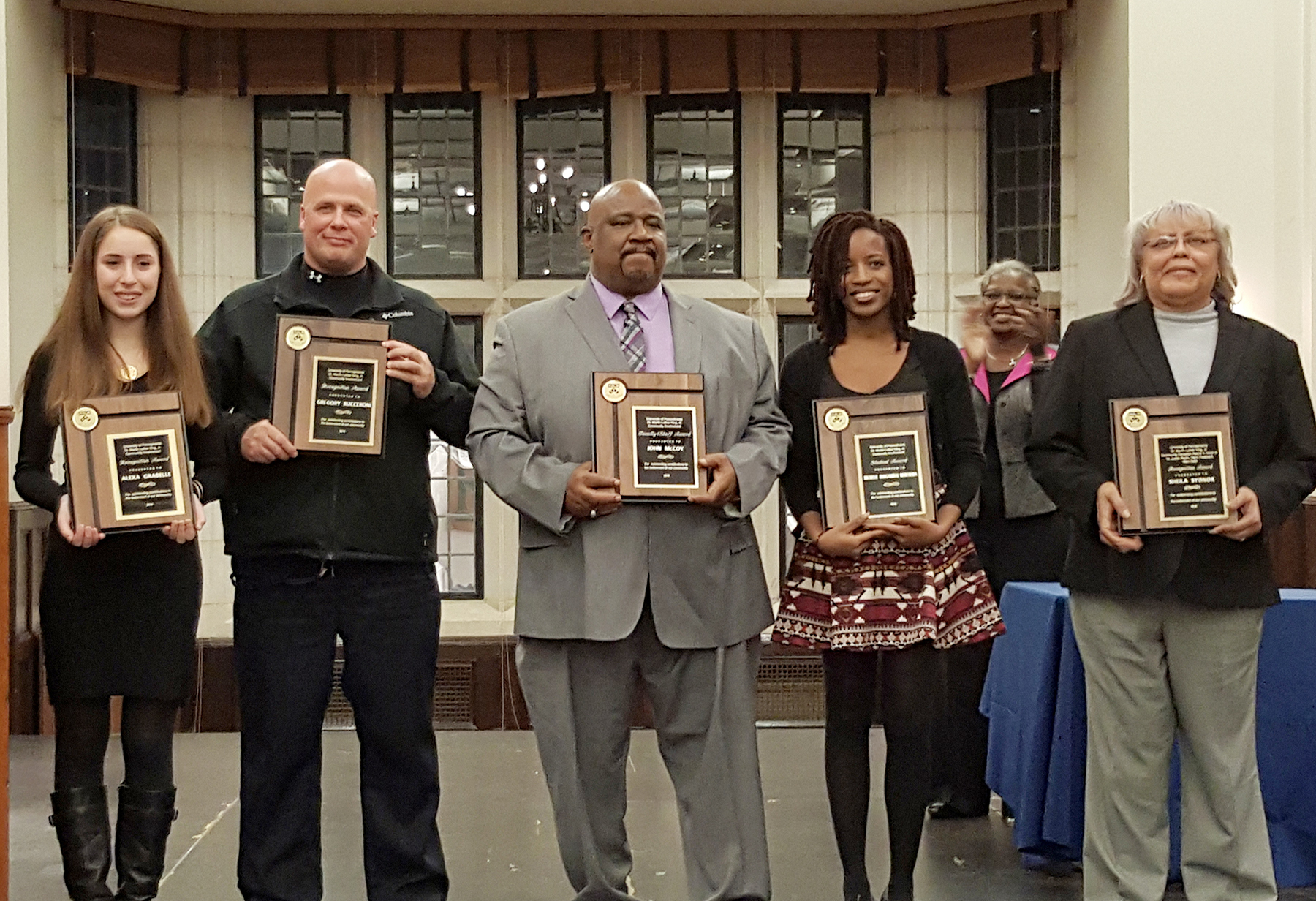
.jpg)

.jpg)
![caption: One of the nineteenth century works in the exhibition at the Arthur Ross Gallery: Frank Furness (1839-1912) and George Wattson Hewitt (1841-1916) [Elevation on Broad Street], 1873-1876. Black ink, watercolor wash and pencil on white paper on mount; the Pennsylvania Academy of the Fine Arts, Philadelphia, PA](/uploads/img/FURNESS-1876_6_8.jpg)
